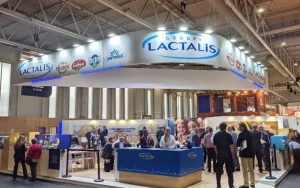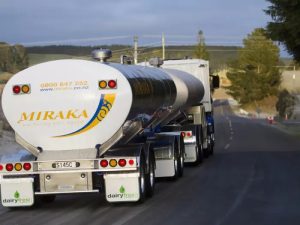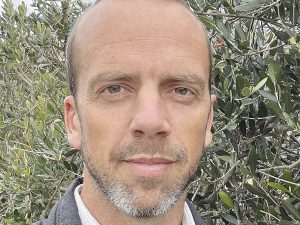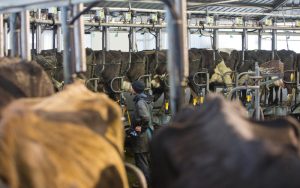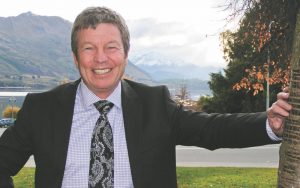
At its annual meeting in Rotorua, chairperson Peter McBride and chief executive Miles Hurrell told farmer shareholders that the dairy co-operative was likely to set a target for Scope 3 carbon emissions, which would encompass emissions the company is indirectly responsible for, including farmers.
Fonterra would meet with farmers before the end of the year to discuss the target and what the flow-on effect for farmers might mean, Hurrell said.
“In short, it comes down to us collectively meeting the climate change expectations of our stakeholders, and the risk if we don’t,” he said. “The subject that dominates conversations with our customers and debt capital providers is sustainability.”
According to Fonterra, 73% of global consumers found sustainability pledges important when buying dairy products.
Fonterra’s high-value customers were setting emissions reductions targets, and if the company could not give them confidence on helping them achieve their targets they would look to competitors, including using alternatives to milk, Hurrell said.
While New Zealand dairy farmers had a carbon footprint less than one third of the global average, “we can’t sit back”, Hurrell said.
“Customers and consumers expect more, and doing nothing simply isn’t an option. We need to maintain this advantage and keep pace with their expectations,” he said.
McBride said setting a Scope 3 target would help Fonterra maintain competitive access to some of its key international markets.
He noted the European Union had proposed a carbon border adjustment tax on some carbon-intensive goods that were subject to a carbon emissions price via the EU’s Emissions Trading Scheme.
Agriculture was not currently in scope but could be brought into the scheme, and other markets would follow, he said.
“I expect these types of trade barriers to become more frequent as international governments respond to their own climate commitments,” McBride said. “It’s important we get ahead of them early.”
He said it was an opportunity for Fonterra, the world’s largest dairy exporter, to leverage its natural advantages, noting that New Zealand dairy farmers already had the world’s lowest carbon footprint.
“If we can maintain that advantage, we have an excellent opportunity to build mutually beneficial relationships with our premium customers,” he said.
McBride said being able to demonstrate basic reporting and environmental progress would be critical for lending purposes in the future.
Fonterra’s own banks and financiers wanted to know the steps the company was taking to reduce its emissions footprint, Hurrell said.
Last month, Fonterra announced its sustainable finance framework, which detailed how it may use and manage any sustainable debt, including green bonds and sustainability-linked bonds and loans.
“It is our expectation that the banks will be setting their own industry targets over the coming years,” Hurrell said. “We anticipate that you will be having similar conversations with your banks in relation to your individual farming businesses within a similar time frame, so it’s a conversation and a change that we need to do together.”
Last year more than 70% of Fonterra farms achieved an additional payment under the co-operative’s scheme that rewarded farmers who met its sustainability goals.
Hurrell and McBride acknowledged that the changes for farmers came at a cost.
“We know that the rate and extent of some of the changes dairy is being asked to make is a concern and not without significant cost – both financial and personal,” McBride said. “Our focus is on supporting you through the changes by signalling them early.”
He said Fonterra supported the intent of He Waka Eke Noa, a proposed farmgate emissions pricing system to reward climate-friendly farmers, noting it aligned with the company’s strategy of focusing on sustainable New Zealand milk.
But like industry organisation DairyNZ, Fonterra had reservations about the Government’s approach to the levy price-setting process, governance, sequestration, and it supported changes on those issues, he said.
“It’s important that the final package works for all of the primary sector,” McBride said. “It won’t be perfect for everybody, but we firmly believe that the original He Waka Eke Noa proposal is a better option than being forced into the Emissions Trading Scheme – which is what happens if consensus on He Waka Eke Noa is not reached.”






